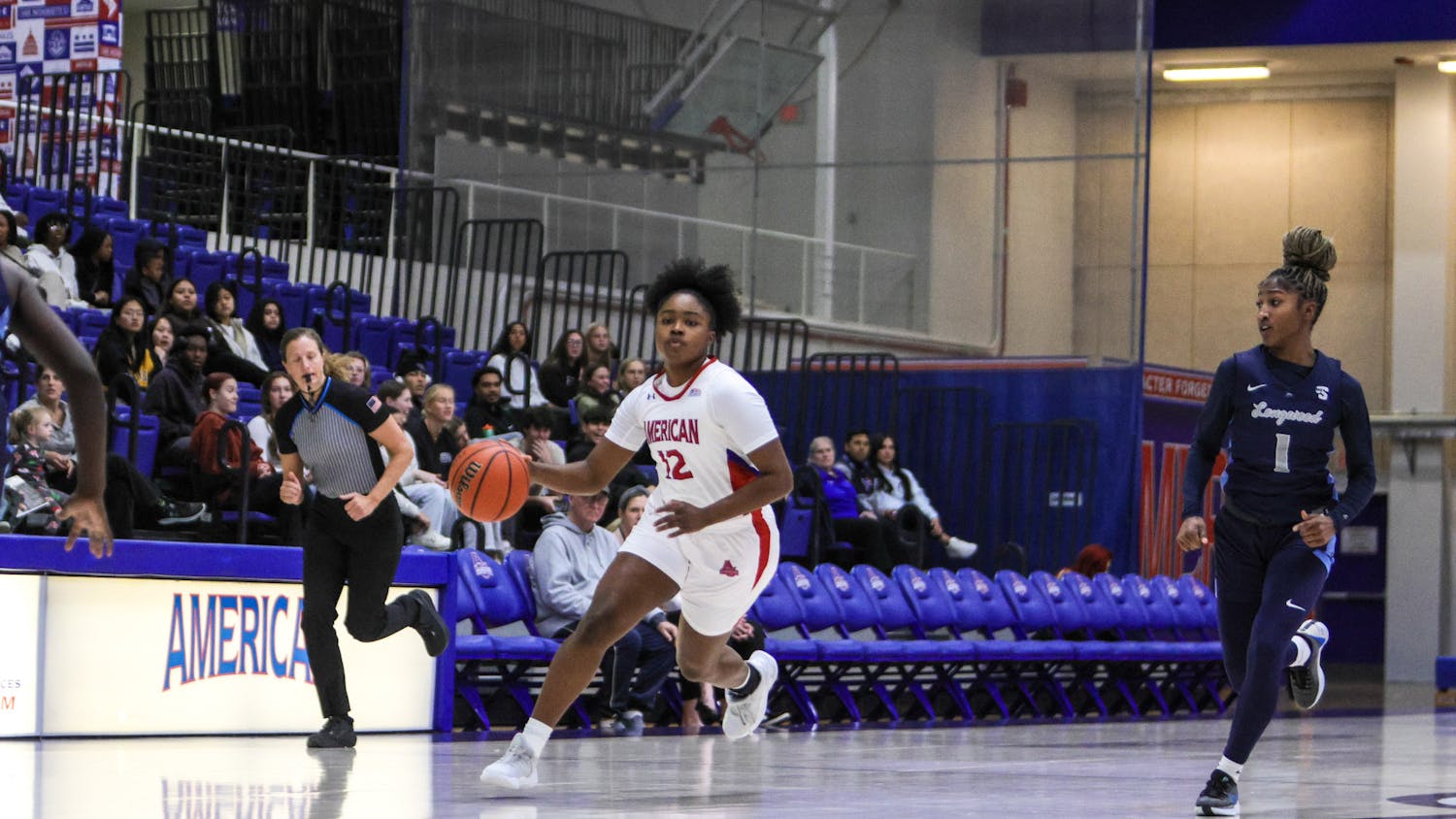The Eagle’s editorial board is comprised of its staff but does not represent every individual staffer’s views. Rather, it provides an insight into how The Eagle, as an editorially-independent institution, responds to issues on campus.
On Aug. 19, the American University administration held an online open forum for students and administration to “work together” on proposed policies related to expression. The University’s expressed goals of working together are questionable at best, following limited meaningful engagement with students, ambiguity in policy construction and previous open forum shortfalls.
AU’s community is transitioning to Jonathan Alger’s presidency at a time of student calls for inclusion in decision making and active protest. In a university culture that demands to be heard, Alger must prioritize student voices to engage with AU’s changemaker legacy. Failure to do so stifles student’s civic engagement on campus by isolating students from discussions of their own speech.
The University announced the online open forum following the Jan. 25 directives put into place by previous University President Sylvia Burwell's administration, which Alger’s administration has now rescinded. The Jan. 25 directives included a ban on all indoor protests and specific content restrictions for posters and flyers put up on campus. Before the student forums, the University hosted a forum for staff and faculty on Aug. 8.
The open forums and rescinding of controversial policies may suggest a more amenable environment for staff, students and administration. However, the University’s limited engagement with non-administrative members at some of these open forums and vagueness surrounding student roles in policy construction are reminiscent of an administration that continuously told students that change can wait.
Alger’s administration advertises these forums as “an opportunity to work together,” yet restricts some dialogue and questioning during the open forums. During some open forums, the Zoom chat function is restricted and only previously submitted questions may be answered, cutting off meaningful dialogue and engagement with information presented in the moment. Only the most outspoken voices are then heard, as less active student body members are less likely to meet these administrative formats.
Administration sets the standards for inclusivity at student presence, rather than allowing AU’s historic activism to play more of an active role in these conversations. The student body is then left with little choice but to idly listen to administrators at these open forums. With barriers to conversation and limited avenues to express an opinion, are these open forums truly open?
Since the online open forum on Aug. 19, American University issued a statement putting the Outdoor Chalking, Tabling and Posting Material policies into effect and released draft policies on Social Media and Facilities Use. The release and concrete policies may be a step forward in providing students with clear information regarding their expression.
These policies however, do not absolve administrators from including and listening to student voices, nor does it absolve them of rebuilding trust between the student body and administration. The University must also make the voices behind these newly implemented policies clear, as questions around the policies build.
AU established these policies with stakeholders and an undisclosed law firm, remaining unnamed for the express purpose of “follow[ing] principles of inclusive excellence.” Inclusive excellence, however, should not be used as an umbrella term for administrative discretion. Students do not need passive reflection, but transparency and action that reflects our campus culture.
Students have asked for a voice and action from administration in the past, notably after an instance of sexual assault in Leonard Hall in 2022. In the midst of policy demands and calls for student safety, Burwell’s administration held an open forum between students, student government and the Office of Equity and Title IX in November 2023.
Following the open forum, students continued to stage an anniversary protest against University inaction on sexual violence, stating that the University had failed to work with students and keep them safe. As the University redirects students to the same avenues that failed us in the past, the open forums become representative of administrative inaction and disregard for student movements.
Alger’s presidency has begun to field student concerns early on, but if past patterns are any indication of open forums efficacy, student distrust and outcries will continue to grow. Students are not requesting press conference meetings, but rather an accessible space for transparency and dialogue, especially at a time of heightened speech limitation on college campuses nationwide.
Open forums can be a tool for increased communication and campus input, but only with an administration that actualizes inclusivity and student voices, instead of using restrictive zooms and vague policy construction as passive tools. American’s culture of activism is ready to work with Alger, but we cannot keep knocking on the same broken doors.
This piece was written by Rebeca Samano Arellano and edited by Abigail Turner. Copy editing done by Luna Jinks and Charlie Mennuti.





